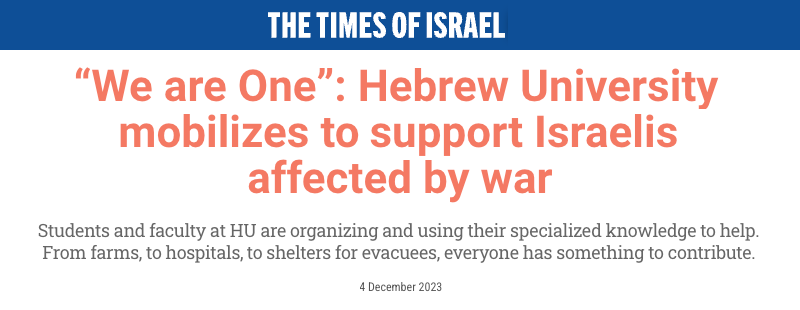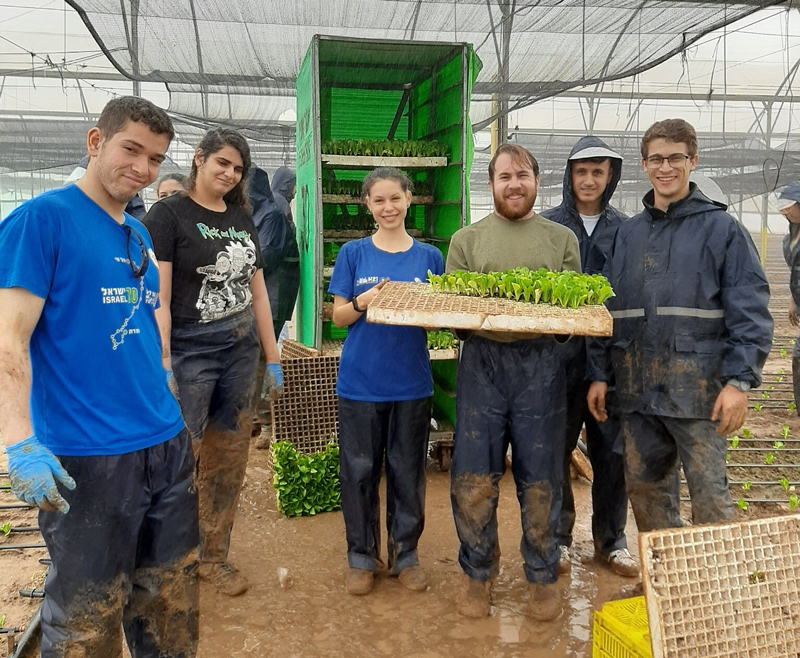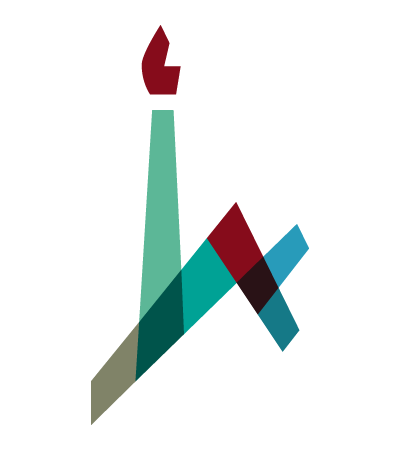
On the morning of October 7, Shahaf Benson woke up like most Israelis: shocked to find herself in a country under invasion, and horrified by the brutality Hamas was visiting upon communities in the south. As the days passed, the shock settled into a restless depression; she hadn’t been drafted for reserve duty, and she felt useless at a time when she desperately wanted to take action. As the CEO of the Student Union of the Faculty of Agriculture at Hebrew University, Benson was in close touch with other students and knew that they felt the same way. As the diverse, expanding needs of the country became clear over the ensuing days, she realized they didn’t need to don fatigues to help Israel win the war.
“Like me, many of our students were desperately wanting to help in any way they could,” said the environmental economics and biotechnology student. Benson and the Student Union’s chairman, Nitzan Nagar, arranged to send volunteers to farms suffering due to the lack of workers available to treat fields and harvest crops. Since the start of the war, the faculty of agriculture has arranged biweekly groups of students, faculty, administrative staff, and others to pick crops such as parsley, eggplant, and avocados at different farms in the south and center of the country. So far each outing has had between 20-50 volunteers.
“Volunteering gives us a feeling that we are in this together to win,” Nagar said. “A freshman can be picking crops next to the dean, and we are all equally contributing.”
This urge to contribute has sparked a wave of volunteerism across all Hebrew University campuses, where students and faculty in all departments are coming together to provide aid to people affected by the war. Aside from agriculture students helping farmers, there are law students helping evacuees understand the benefits they’re entitled to, medical students putting their studies to work at hospitals, and dental students treating survivors and identifying victims.
“There is a sense of purpose and unity in these actions,” said Orit Gal Garber, Ph.D., head of the Core Research Facility of the Faculty of Agriculture, and a biweekly volunteer at various farms. “As the days pass and the horrors that are discovered and exposed increase, I find myself escaping to the fields through volunteering. This fills me with a sense of pride. It’s not just about being there for the farmers, it’s about finding a sense of connection and resilience in the midst of chaos.”
To support these volunteers and the citizens of Israel coping with the war, the American Friends of Hebrew University launched an emergency campaign called “We Are One” to provide financial assistance, housing, counseling, extra campus security, and other services for people affected by the war. The AFHU estimates that there are 28,000 members of the Hebrew University of Jerusalem community, all of whom have been affected in some way.

“The Hebrew University’s American friends will do everything we can to support our community members during the war and its aftermath, which we hope will bring lasting peace,” says Joshua Rednik, chief executive officer, American Friends of the Hebrew University. “We are inspired by the Hebrew University community’s commitment to volunteering in many capacities in Jerusalem and throughout Israel. As they serve us, we wish to serve them through the We Are One fund.”
Shona Goldwirth, a third-year medical student, said she felt compelled to volunteer the minute she woke up to sirens on October 7. Goldwirth’s brother was immediately drafted to the IDF and she knew she couldn’t let him be the only one helping the war efforts. Goldwirth said that by 10:30 am on October 7 she had started asking her colleagues and classmates who needed help. The first response she received was that mental health hotlines were crashing and needed support to handle the phone calls they were receiving.
In response, Goldwirth and two of her classmates organized a WhatsApp group for medical students who wanted to volunteer. By the evening, there were already more than 1,000 members. Two days later, there were 4,500 medical students ready to volunteer in hospitals and mental health facilities. At first, hospitals were hesitant to accept medical students to step in. But because hospitals were so short-staffed when doctors were drafted to the IDF, they agreed to allow student volunteers.
“There is nothing like experience in studying medicine,” Goldwirth said. “It’s very special to see how the hospitals and medical staff have a lot of respect for the field and are trusting students to help. The volunteers go to sleep knowing they are helping. Usually it takes a long time for medical students to feel valuable.”
Goldwirth said many students are volunteering weekly and that the university is even considering this volunteer work as clinical education.
“It’s nice to create a reality that the hospitals know that students are a reserve unit that can be recruited any time they are needed,” Goldwirth said. After organizing medical students, Goldwirth volunteered to be recruited by the IDF and is now serving at the National Institute of Forensic Medicine to help locate and identify missing civilians.
The HU law department, meanwhile, is helping Israelis navigate legal issues that have arisen during the war. “This is the way I can make the difficulties smaller,” Tomer Ben Simon, a third-year law student, said.
The law school’s legal clinic, which gives law students the opportunity to learn while providing free aid to people in need, created a Facebook page at the start of the war where people could ask questions and seek advice while receiving important updates about their rights. This page is monitored 12 hours a day, five days a week by law students who draft responses that are approved by practicing lawyers before being submitted.
Ben Simon said many of the questions on the page deal with what to do about homes destroyed by rockets, how to get social security for injuries, or employment conflicts. Dealing with bureaucracy or reaching out to authorities can be overwhelming at this time.
“I see that in a state of war, many people are impacted, in different ways,” said Rotem Nahmany, a third-year Bachelor of Arts student studying law and social work who volunteers with the legal clinic. “Some people have lost their jobs, and many have been forced to leave their homes. This raises a lot of uncertainty and confusion. As the war progresses, more and more information, rights, and grants are coming out, but it feels like it’s impossible to keep track of everything going on. It is our mission to help people understand their personal stories, and receive the help they so desperately need and deserve.”
Law students have also been visiting hotels where evacuees are staying to discuss their rights regarding government aid and insurance for damage caused by the war.
“It is a privilege to meet these people, hear their stories, and try to resolve whatever we can,” said Nahmany. “Sometimes just listening to someone can make all the difference in the world. Whenever I feel like what I’m doing is just a drop in the bucket, I think about the faces, and the smiles, and remember that that “drop” can be the entire ocean for someone else.”
The legal clinics have also been examining Knesset policies to locate gaps and propose solutions to improve aid to citizens. Additionally, law students are appealing to the United Nations, the Red Cross, and other International Organizations to fight for the return of the hostages.
“We know this has an impact,” said Shiran Reichenberg, the executive director of HU’s legal clinic. “We never in our worst nightmares thought we would have to deal with this. It’s hard to hear all the stories and try to comprehend what happened. Seeing what we could do for others has an immediate impact on the lawyers and students. They can contribute their knowledge and experience and have a sense that they are helping specific people. The victims also have someone to turn to and we will stay with them until their problems are solved.”
Volunteering appears to help the victims as much as the volunteers themselves. Many volunteers said that contributing has helped them deal with their own emotional distress caused by the war and has given them hope for the future.
“The volunteers come back feeling very motivated,” said Benny Chefetz, a professor of environmental chemistry in the Faculty of Agriculture, regarding the students volunteering at farms. “They are learning and they feel they are really helping this sector and the Israeli economy.”
The HU’s logo is a torch. Each volunteer is carrying this torch and spreading light that is greatly needed during these dark times. With everyone’s contributions, Israel will stand tall with strength and solidary.

